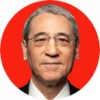China ended a three-decade tradition when it announced on March 4 that Premier Li Qiang would not hold a press conference at the conclusion of the annual meeting of the National People's Congress in Beijing. Moreover, the NPC, as the central government's rubber-stamp legislative body is known, stated there will be no post-meeting pressers through 2027. The widely televised event, during which premiers would take questions from both domestic and foreign media, has been a highlight of the Chinese political calendar since 1993.
The surprise move comes at a time of disturbing news about both China militancy in its peripheral seas and hints that the Chinese regime is tearing itself apart.
China's leaders are now reacting to a rapidly deteriorating situation. The economy, the motor of the country's half-century rise, is failing. Gross domestic product did not increase 5.2 percent last year, as the National Bureau of Statistics officially reported. Growth—if indeed there was any—was about 1.5 percent, as the Rhodium Group estimated.
Since the official GDP announcement in January, there has been growing skepticism of Beijing's reports of a robust expansion. China is plagued with symptoms of a sinking economy: deepening deflation, crumbling property prices, continuing debt defaults, a weakening currency, accelerating capital flight, and failing local governments. Falling population—the number of people peaked in 2021—does not help.
The regime says it is relying on "new productive forces," in other words, high-tech businesses, to lead to an economic transformation. And it's true there are "islands of excellence," as observers call them, but by themselves they cannot rescue an economy plagued by deep structural problems.
The premier, as head of the State Council, is in charge of the central government, so, apart from throwing around buzz phrases, he of course does not want to talk about economic or other problems. As William F. Buckley, Jr. famously asked, "Why does baloney avoid the grinder?"
Moreover, the cancellation of press conferences through 2027 suggests that China's leaders do not see the internal situation improving anytime soon. Li Qiang's Work Report, delivered on the opening day of the NPC, was short on specifics for jumpstarting the economy this year.
So what is happening inside the Communist Party? Xi Jinping has made the governing clique even more opaque, so it is especially hard for those on the outside to know.
The cancellation of post-NPC press conferences shows a "strategically significant" change in the attitudes of the Chinese regime, Steve Yates, chair of the China Policy Initiative of the America First Policy Institute, explained. "For thirty years, the press conference showcased the technocratic leadership of the Chinese state," says Yates, drawing a distinction between the "state"—the central government—and the Communist Party. Beijing's leaders had used the event, he points out, to attract investment, highlight manufacturing growth, and "promote the soothing scenario of China's peaceful rise."
No more. Reuters reports that the ending of the press conferences was "seen by some observers as a sign of the country's increasingly inward focus and centralized control."
Yates agrees. "The abrupt cancellation signals that Xi Jinping and the Communist Party no longer believe they need to sell the narrative of peaceful rise or the idea that technocrats are in charge," he notes. "Xi Jinping is pulling back from even modest forms of transparency, accessibility, and accountability. The blackout through 2027 is a chilling sign that Xi intends to speak by way of action rather than diplomacy."
These developments in fact come at a time when Xi has embarked on unusually aggressive external policies, especially in China's peripheral waters. There have been, for instance, provocative actions around Taiwan's Kinmen since the drowning of two Chinese fishermen on February 14, after they intruded, without justification, into waters around that offshore island.
Furthermore, China's recent actions around Second Thomas Shoal in the South China Sea this week were so belligerent that the State Department issued a warning that the U.S. was prepared to use force against China to discharge its obligations pursuant to Article IV of the U.S.-Philippines Mutual Defense Treaty.
The aggression is just the latest sign of regime disunity. For example, many expected that Xi Jinping ally Liu Jianchao was going to be installed as the new foreign minister by now, and some think that the failure to announce this and other key personnel appointments at the NPC suggests that infighting has been intense and that Xi has not been able to get his way.
Moreover, the NPC comes after a half-year of unexplained disappearances, most notably of Qin Gang, now former foreign minister, and General Li Shangfu, defense minister until he was formally sacked last October. There have also been wholesale changes in the People's Liberation Army, especially in the Rocket Force, the branch controlling almost all the country's nuclear weapons.
Observers have made the case there is now no-holds-barred infighting at the most senior reaches of the Communist Party. Others see Xi Jinping tightening his grip. Yet whether Xi is firmly in charge or on the way out, China and its regime are in distress.
Extraordinary events are occurring inside the People's Republic of China.
Gordon G. Chang is the author of The Coming Collapse of China and China Is Going to War. Follow him on X, formerly Twitter, @GordonGChang.
The views expressed in this article are the writer's own.
Newsweek is committed to challenging conventional wisdom and finding connections in the search for common ground.
Newsweek is committed to challenging conventional wisdom and finding connections in the search for common ground.





















 Toi Staff
Toi Staff Gideon Levy
Gideon Levy Belen Fernandez
Belen Fernandez Andrew Mitrovica
Andrew Mitrovica Mort Laitner
Mort Laitner Nikkei Editorial
Nikkei Editorial Rami G Khouri
Rami G Khouri Ali Fathollah-Nejad
Ali Fathollah-Nejad
